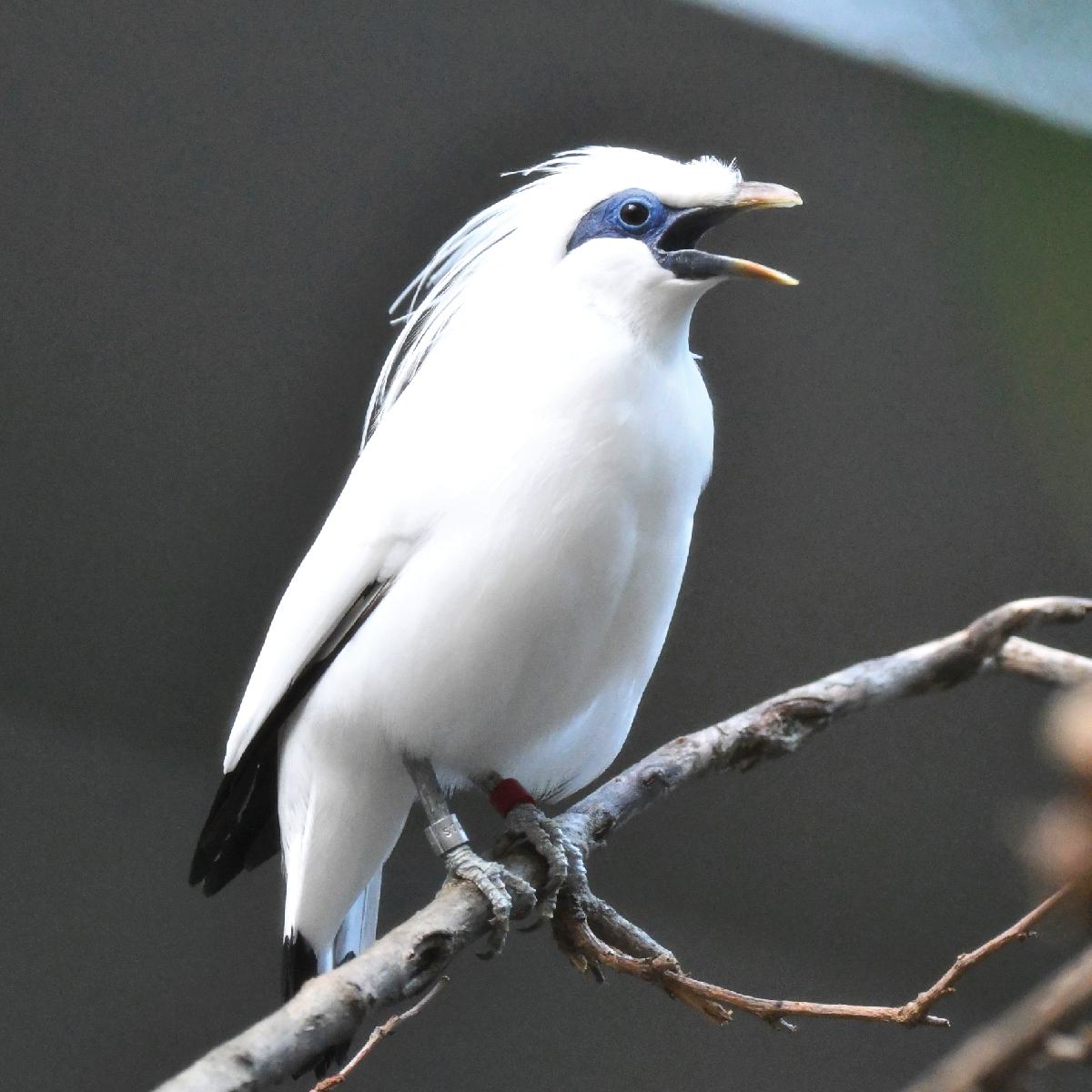
Bali Myna
Leucopsar rothschildi
Did you know?
- Bali Myna are a part of the Sturnidae family, which they share with other mynahs and starlings.
- They are also known as Bali starlings and were once called “Rothschild’s grackle.”
- They live across the island of Bali in Indonesia.
- This species is Bali’s official bird.
- A female will lay two to three eggs in a clutch.
Adaptations
A lot of what is known about Bali mynas comes from studying them in zoos, since their wild population is small and somewhat remote. Bali mynas are white birds with black feathers on the tips of their wings and tail. A bright blue skin patch circles each of their eyes, making them very unique and beautiful birds. They live in holes in trees. They tend to be monogamous and mating pairs will build nests together.
Almost Extinct in the Wild
Bali mynas are nearly extinct in the wild, with around 60 left in their natural habitat. This means the population found in Association of Zoos and Aquariums-accredited institutions is extremely important to this species' future. There are about 1,000 Bali mynas in the Species Survival Plan. We are one of many zoos working together to support successful reproduction, and the possibility of reintroduction, of these mynas.
Threat Level
- Unknown
- Common
- Near Threatened
- Threatened
- Endangered
- Critically Endangered
- Extinct in the Wild
Critically Endangered
The Bali Myna faces an extremely high risk of extinction in the wild.
Range
Bali (in Indonesia)
Habitat
Open woodland with grass understorey

We care about Bali Mynas
Bali mynas suffer from the illegal pet trade and habitat destruction. The Saint Louis Zoo participates in the Species Survival Plan for Bali mynas. This is a cooperative breeding program, with a number of zoos working together to ensure the survival of the species. We also support them in the Bird House at the Zoo. Learn more about how we are helping wildlife around the world.
Find this animal in Historic Hill

SAINT LOUIS ZOO ZONE
Historic Hill
Historic Hill is a lovely stroll through one of the oldest parts of the Saint Louis Zoo. From the 1904 World’s Fair Flight Cage to the Spanish architectural flavor of the 1920s in the Bird House, Primate House and Herpetarium to the finishing touches of our thoroughly modern exhibits, this area of the Zoo has a unique ambiance and a nostalgic history that make it a great destination.

